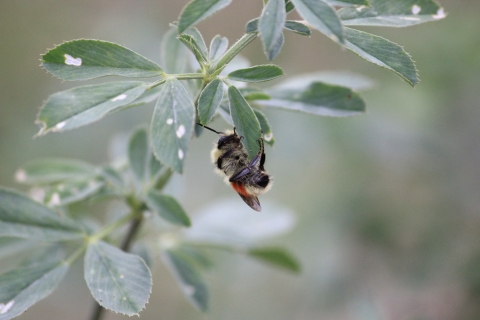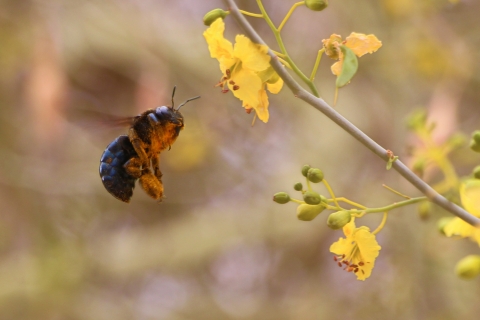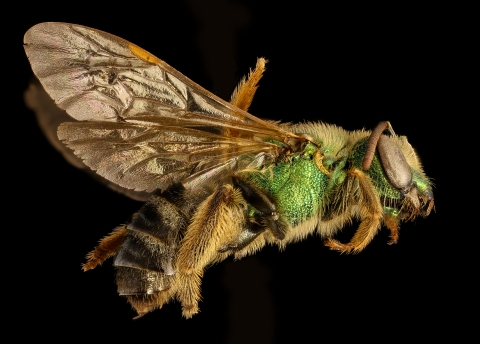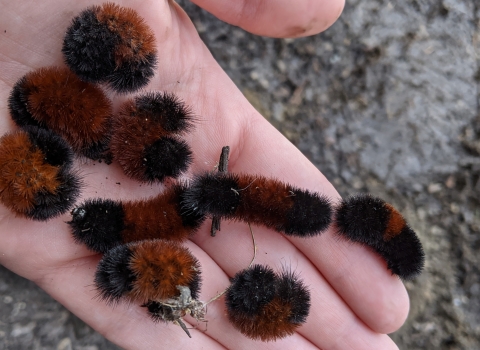Who helps prepare your holiday meals? Do they have wings, antennae, and six legs? If you’re eating apple pie, cranberry sauce, and other common dishes, they do!
By helping plants reproduce, bees and other pollinators make our special dinners possible. Meet a few of these busy bees below.
BUMBLE BEE (Bombus)
Some Thanksgiving contributions: Tomatoes, peppers, cranberries
Fun fact: You’ve probably heard a bumble bee buzz, but did you know that the sound helps dislodge pollen from plants?
Learn more: U.S. Fish and Wildlife Service video on efforts to enhance habitats for the western bumble bee; National Park Service article on how bumble bees “change the world, one plant at a time”
SQUASH BEE (Peponapis and Xenoglossa)
Some Thanksgiving contributions: Pumpkins, zucchini, butternut and other types of squash
Fun fact: They’re early birds—er, early bees. Look for them near squash flowers during the first few hours after sunrise.
Learn more: Pollinator of the Month feature, U.S. Forest Service
CARPENTER BEE (Xylocopa)
Some Thanksgiving contributions: Eggplant, tomato, cucumber, zucchini
Fun fact: Flower nectar can be difficult for some bees to reach—for example, if the blossom is tube-shaped. However, carpenter bees and others can bite a hole at the flower’s base to drink the nectar.
Learn more: Pollinator of the Month Feature, U.S. Forest Service
SWEAT BEE (Halictidae)
Some Thanksgiving contributions: Apples, stone fruits, alfalfa (animal feed)
Fun fact: Picture a bee. Is it yellow? Bees actually come in many colors, such as blue, white, orange and red. Some sweat bees are even metallic green.
Learn more: Take a closer look at the sweat bees of Maryland and Missouri.
Without bees and other pollinators, a holiday meal might look like this. To thank them, why not treat them to dinner in return? Plant a pollinator garden or consider other ways to help them thrive.







